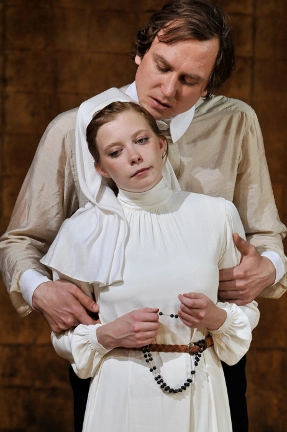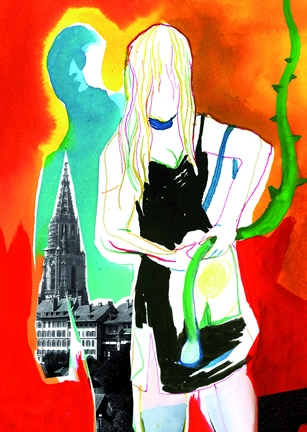Mass für Mass [Measure for Measure]
April 04 2012 to April 14 2012
Théâtre de l'Odéon
Mortality and mercy in Vienna…
Shakespeare
It is a great pleasure to once again host the great Thomas Ostermeier and his wonderful troupe of actors, just a few months after a triumphant Dämonen, which sold out for its entire run. It is also a privilege to host the Schaubühne company for this production of one of the subtlest comedies by Shakespeare, a playwright with whom Ostermeier has, over the past few years, been engaged in a fascinating dialogue. Here we have a rare opportunity of seeing The Misanthrope and Measure for Measure being performed side by side. They are arguably the two masterpieces of the theatrical repertoire which interrogate with the acutest degree of irony the question of social cohesion, and do so by stressing the notion of the “happy medium”. In Molière’s play Alceste appears as an embodiment of excess: from the moment he appears on stage he displays absolute sincerity. Shakespeare, on the other hand, takes more time to address the issues at stake. Firstly, because he chooses not to confine his play to an aristocratic milieu, but offers a portrait of a city, from the common people to senior judges. Moreover the balance to be found –and to have the audience consider – regards not codes of personal conduct, but the application of the law. The behaviour that the German director puts under the microscope concerns not only individuals, but raises questions regarding the whole of society. The drama begins to unfold as follows: Vincentio, the Duke of Vienna, leaves the city in the hands of Angelo who, in his master’s absence, and in charge of the administration of justice, gives himself a mission: to re-establish once and for all absolute order by eradicating all forms of misconduct. The regent considers that justice consists of adherence to the strict letter of the law, entailing a refusal to take into account the particular circumstances of each case. This rigid approach leads him apply an obscure law, with the result that a likeable young man, Claudio, who was in a great hurry to marry the beautiful young woman who he has made pregnant, is condemned to death, whereas a vile pimp manages to get himself acquitted on a legal technicality… From there the plot thickens further. Isabella, Claudio’s sister and a novice nun, obtains an audience with Angelo in order to plead for mercy for her brother. The incorruptible judge is not convinced by her arguments, but, deeply moved by her beauty, cannot stop himself from making her an offer: a pardon for Claudio in return for her favours… Should she refuse in order to save her virtue? But where is the virtue in such a strict conception of virtue? The play then becomes so disturbing and complex that only after several centuries of critical debate has a kind of consensus regarding the author’s intentions been reached: such are the difficulties involved in passing judgment on a play which is itself about passing judgment.







